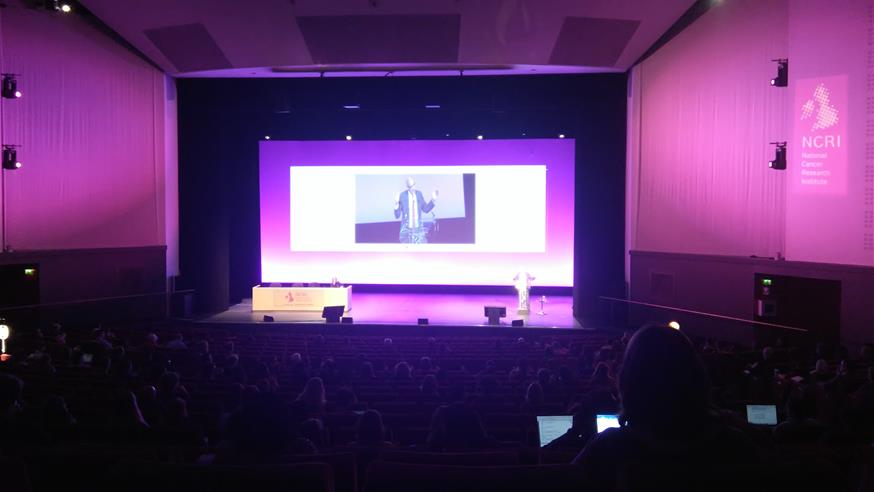
On a cold and sunny Sunday, members of The Institute of Cancer Research, London, have made their way to the National Cancer Research Institute (NCRI) Cancer Conference, one of the most important events in the UK's cancer calendar.
Each year, thousands of doctors and scientists head to Liverpool to hear about the latest research and to connect with their colleagues from across the UK and further afield. This year there is a bumper schedule of seminars, poster presentations and workshops across a wide range of cancer topics.
NCRI is embracing interactivity with their innovative idea of allowing conference attendees to message their questions to the speakers during seminars via a downloadable app for the first time, encouraging more inclusive debate.
Cancer in the media
Another first for the conference was found in one of the opening sessions, which looked at the way cancer research is reported in the press. Dr Kat Arney is a journalist, former scientist and science communications manager at Cancer Research UK, so she has a wealth of knowledge about how science is packaged as news.
The media love a cancer story, both good and bad, and it can seem like every new finding is pronounced as a miracle cure, or another cause of cancer. Irresponsible reporting can cause confusion for patients and their families, or raise false hope when research findings are tentative or still years away from the clinic - but scientists aren't blameless and they play an important role in shaping this narrative.
Most journalists work really hard to understand research and convey it accurately, but they aren't experts, and they rely on scientists to help them out. Working with them and thinking about what the media are looking for in a story can help to avoid hype or misunderstanding, and bridge the gap between what gets reported and what the research actually says.
But we also need to be braver and more sophisticated when we talk about cancer research if we want to rise above this cause/cure perception. Cancer is incredibly complex, but by thinking about how we talk about the disease we can come up with inventive, engaging ways to convey this complexity, leading to more nuanced and balanced debate.
Collaboration and Interactivity
Earlier on, the opening address had set the scene for the four days to come, as Dr Karen Kennedy, the NCRI Director, welcomed attendees.
She emphasised collaboration as hugely important to modern cancer research, with conferences like NCRI helping researchers from a wide array of disciplines to come together to share ideas and to learn about research outside their normal fields of expertise.
Following Dr Kennedy’s speech, the first plenary lecture from Dr Charles Rudin of the Memorial Sloan Kettering Cancer Center in the US focused on lung cancer, looking at some interesting findings which could potentially help patients with a form of the disease called small cell lung cancer.
Small cell lung cancer is often extremely sensitive to chemotherapy treatment, but unfortunately the disease can become resistant to chemo drugs very quickly, and on average patients don't often survive longer than about nine or 10 months before they succumb to their disease.
Researchers from Sloan Kettering have been trying to uncover how small cell lung cancer becomes chemo-resistant so quickly using mouse models of the disease, and they have identified a gene called SLFN11 which plays an important role. Low levels of SLFN11 was associated with resistance to chemotherapy, so treatments which could boost its activity could reverse this and improve outcomes.
More to come
This is just a small snapshot from NCRI's opening sessions, but our researchers will be involved throughout the conference. ICR CEO Professor Paul Workman and Professor Judith Bliss are part of a debate about whether we should prioritise getting more out of existing drugs for breast cancer rather than searching for new agents - this will no doubt be a lively affair and you can read our blog about it tomorrow (Monday 7 November).
And our researchers will be giving a number of talks and seminars throughout the conference, so keep an eye on our blog and follow @ICR_london and #NCRI2016 on Twitter for all the latest information.
Other posts from NCRI 2016
comments powered by